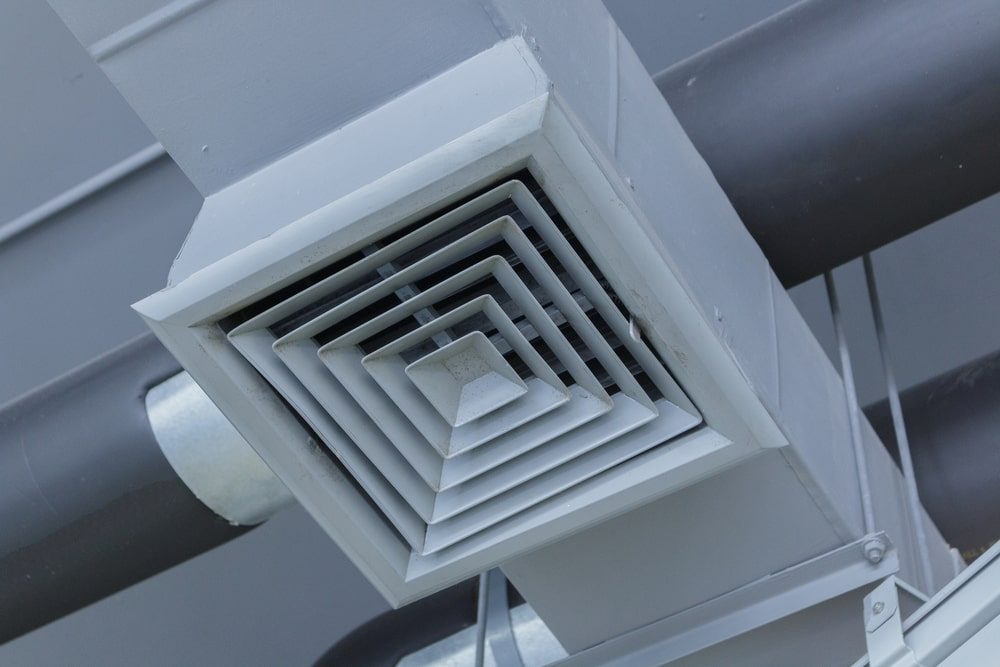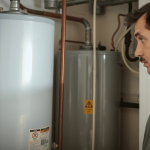Spotting a leak sounds simple until your water bill jumps and you start chasing drips around the house. A few do-it-yourself checks can save you money, but the wrong moves can waste time and let damage spread. Here is how to avoid the most common pitfalls, what to check first, and when to call The Otter Guys for fast, precise leak detection.
Key Takeaways:
- A running toilet is the number one hidden culprit; a single leaky toilet can waste about 200 gallons per day.
- Tiny drips are not small on your bill; a faucet dripping once per second can waste more than 3,000 gallons per year.
- Outdoor watering adds up quickly; about 30 percent of household water use is outdoors, and up to half of irrigation water can be lost to wind, evaporation, and runoff when systems are not tuned.
- If materials stay wet, mold can begin within 24 to 48 hours; dry affected areas promptly after any leak.
- The average American family uses more than 300 gallons per day at home. Compare your usage to this baseline to decide whether the spike is real use or a leak.
- Many utilities offer a one-time leak adjustment after you fix the issue. Ask your provider what documentation they require.
- When your meter shows flow with fixtures off or you suspect a slab or underground leak, schedule professional leak detection to pinpoint the source without trial and error.
Common DIY Mistakes That Hide The Real Problem
If you think you have a leak and you’re trying to find it yourself, make sure you’re avoiding these common leak detection mistakes.
Skipping The Water Meter Test
The simplest test is the most revealing. Turn off every water-using fixture and appliance, then check your meter. If the flow indicator moves, water is escaping somewhere on the property. Do this before you start replacing parts. Recheck after each change so you know what actually solved the problem. For step-by-step help, see our guide to high water bills and leak detection.
Assuming Your Toilet Isn’t Leaking
Toilet leaks are often silent. A worn flapper or a sticky fill valve can send hundreds of gallons down the drain each day, even when you cannot hear it. Do the dye test, add food coloring to the tank, wait ten minutes without flushing, and check the bowl. Color in the bowl means a leak. Parts are inexpensive, and the fix is fast.
Underestimating Small Drips
A faucet that drips every second looks harmless, but it can waste more than 3,000 gallons in a year. Replace worn washers, cartridges, or aerators. That small fix shows up on your next bill.
Ignoring Irrigation Systems And Outside Faucets
Automatic sprinklers that run daily, a broken head, or long runtimes can add thousands of gallons in a single month. Nationally, about 30 percent of household water is used outdoors, and experts estimate up to half of irrigation water can be lost to evaporation, wind, or runoff when systems are not tuned. Water early in the morning, shorten cycles, and fix overspray. If lines keep leaking, ask us about irrigation repairs during your plumbing visit.
Not Making Sure The Water Dries Quickly
After any leak, moisture plus time equals trouble. The EPA says mold can begin within 24 to 48 hours on damp materials. Dry the area thoroughly, run fans and a dehumidifier, and remove soaked items that will not dry quickly. This protects both your home and your health.
Chasing Drips Instead Of Finding The Source
Replacing a faucet because you see a drip may not fix a failed pressure regulator or a hidden line leak. If your meter spins with fixtures off, the source is likely in a wall, under a slab, or in the service line. That is the time to bring in The Otter Guys for targeted slab leak detection and repair and, if needed, repiping.
Forgetting To Check Appliances
Look behind and under the water heater, dishwasher, refrigerator ice line, and whole home humidifier. A seeping pressure relief valve or a pinhole behind a pan can drip for weeks before anyone notices. If you see moisture or corrosion on the tank, schedule water heater repair.
Not Tracking Real Use Changes
Sometimes the bill is accurate. Company in town, filling a pool, or pressure washing the driveway will move the needle. The EPA notes that the average family uses more than 300 gallons per day, so compare your household to that baseline when you sense a spike. If the numbers still do not add up, move back to leak checks and the meter test.
Leak Detection Checklist
- Turn off everything and check the meter. Note the reading, wait fifteen minutes with all fixtures off, and check again.
- Dye test every toilet. Replace worn flappers and adjust fill valves where needed.
- Walk the yard. Look for soggy areas, overspray, and broken sprinkler heads. Adjust schedules and repair leaks.
- Check appliances. Inspect the water heater pan, fridge line, dishwasher connections, and under-sink shutoffs.
- Dry any wet materials. Act within the first day to reduce mold risk.
If you need assistance at any step, our team can perform a whole-house leak inspection and tackle related issues like drain clogs or sewer repair.
Kailey’s Leak Detection Experience
If you’re like Kailey and you can’t figure out where the leak is coming from, call The Otter Guys, and we can come out and help you. Here’s her experience:
Dominic was able to assist me on the day of my request. He was very knowledgeable about the cause of my sink leak and was honest about the solution options I had. He worked diligently to replace my disposal but was efficient and timely. Highly recommend.
Read Kailey’s story on Google here.
Why Fast Fixes Matter For Your Bill And Your Community
The WaterSense program reports that common household leaks waste more than 10,000 gallons per home each year, and about one in ten homes has leaks of 90 gallons per day or more. Stopping those losses keeps money in your pocket and preserves a shared resource. Outdoors, smarter watering stretches supply further, especially in hot months when irrigation demand spikes.
Can You Get Your Bill Adjusted After A Leak?
In many cities, utilities offer a one-time leak adjustment once you repair the issue and provide proof. Policies vary, but a simple call to your provider can clarify the paperwork and timing. Keep receipts, take before and after meter photos, and ask about any audit tools they offer. You can learn more about Charlottesville’s leak credit policy on their website.
Call Us For Leak Detection
If your meter shows flow with fixtures off, if you hear water in the walls, or if a warm spot appears on the floor, it is time for professional help. We use non-invasive tools to locate leaks quickly and fix the right thing the first time. Start with our leak detection page, or contact us directly through our contact form. If a leak soaked your water heater closet or a bathroom floor, we can also handle the water heater repair and any related plumbing work. A few smart checks now can save you from bigger headaches later. And if you want to float through the rest of your month with a steady bill, bring in The Otter Guys. We will make the leak hunt otterly manageable.





